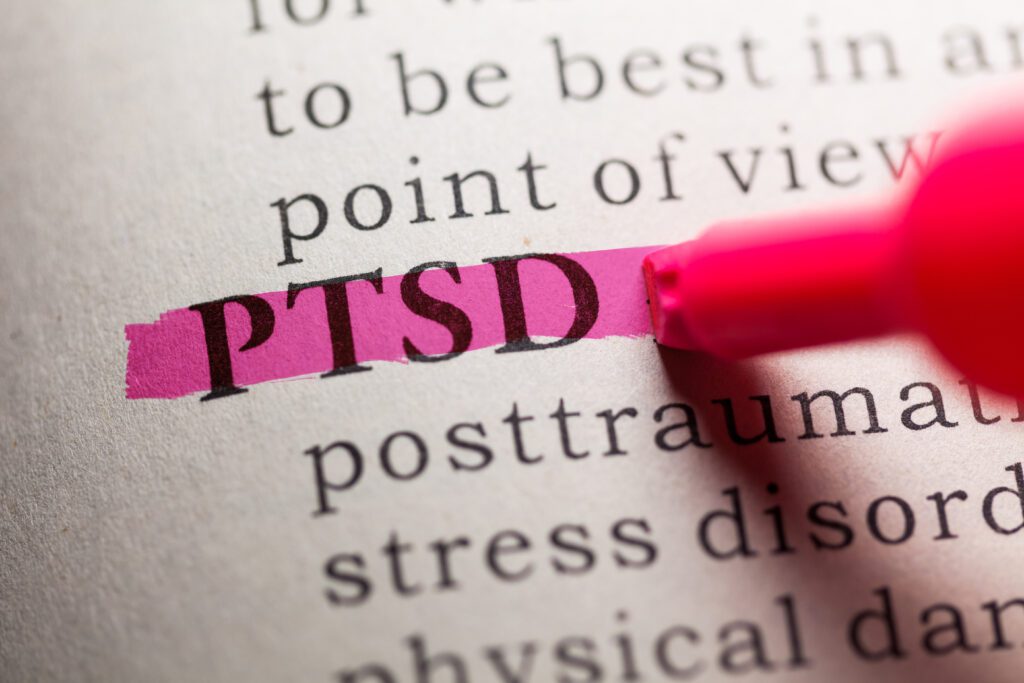Would You Recognize the Symptoms of PTSD?
As the important topic of mental health continues to be in the spotlight—and rightly so—the term PTSD is used a lot. But what exactly is PTSD? Mental health diagnoses require observation by a highly educated healthcare professional, and the misuse of medical terminology can muddy the water, minimizing those who suffer from PTSD and possibly affecting whether an individual seeks treatment or not. Take our quiz on PTSD and get the facts on this critical mental health issue.
1. What does PTSD stand for?
- Partial Trauma Seizure Disease
- Pre-Tachycardia Syndrome Debilitation
- Post-Traumatic Stress Disorder
- None of the above
2. Which of the following is the definition of PTSD?
- A response to repeated trauma.
- A mental health condition that’s triggered by a terrifying event — either experiencing it or witnessing it—which can cause people to feel stressed or frightened, even when they are not in danger.
- Feeling stressed out all the time.
- A strong feeling of impending doom.
3. True or false? PTSD symptoms can last for months or even years and interfere with your day-to-day functioning.
4. True or false? Post-traumatic stress disorder symptoms may start within one month of a traumatic event, but sometimes symptoms may not appear until years after the event.
5. True or false? Symptoms of PTSD include a variety of different types of symptoms.
6. Which of the following are re-experiencing symptoms of PTSD?
- Flashbacks—reliving the trauma over and over, including physical symptoms like a racing heart or sweating.
- Bad dreams
- Severe emotional distress or physical reactions to something that reminds you of the traumatic event
- Frightening thoughts
- All of the above
7. Which of the following are avoidance symptoms of PTSD?
- Avoiding places, activities, or people that remind you of the traumatic event.
- Avoiding thoughts or feelings related to the traumatic event
- All of the above
- None of the above
8. Which of the following are arousal and reactivity symptoms of PTSD?
- Being easily startled or frightened and/or always being on guard for danger
- Self-destructive behavior, such as drinking too much or driving too fast
- Trouble sleeping and/or concentrating
- Irritability, angry outbursts, or aggressive behavior and/or overwhelming guilt or shame
- All of the above
9. Which of the following are cognition and mood symptoms of PTSD?
- Trouble remembering key features of the traumatic event
- Negative thoughts about oneself or the world and/or hopelessness about the future
- Distorted feelings like guilt or blame
- Loss of interest in enjoyable activities
- Difficulty in relationships, in feeling positive emotions, and/or feeling emotionally numb
- All of the above
10. Which of the following criteria must you experience to be diagnosed with PTSD?
- At least one re-experiencing symptom
- At least one avoidance symptom
- At least two arousal and reactivity symptoms
- At least two cognition and mood symptoms
- All of the above
11. True or false? Getting diagnosed by a psychiatrist or psychologist and getting effective mental health treatment after PTSD symptoms develop can be critical to reducing symptoms and improving function.
compiled by ERIKA ALDRICH / Resources: Information provided by the National Institute of Mental Health and the Mayo Clinic.
ANSWERS
- C. Post-Traumatic Stress Disorder. It is a condition that develops after (post) a traumatic incident.
- B. A mental health condition that’s triggered by a terrifying event — either experiencing it or witnessing it.
- True. PTSD symptoms generally last for a long-term duration and cause significant upheaval to the sufferer’s life.
- True. PTSD symptoms can appear after months or even years after the traumatic event.
- True. PTSD symptoms are broken into four distinct categories.
- E. All of the above
- C. All of the above
- E. All of the above
- F. All of the above
- E. All of the above. You must experience all of the different types of symptoms to be diagnosed with PTSD.
- True. PTSD can be mitigated with proper diagnosis and mental health treatment.
